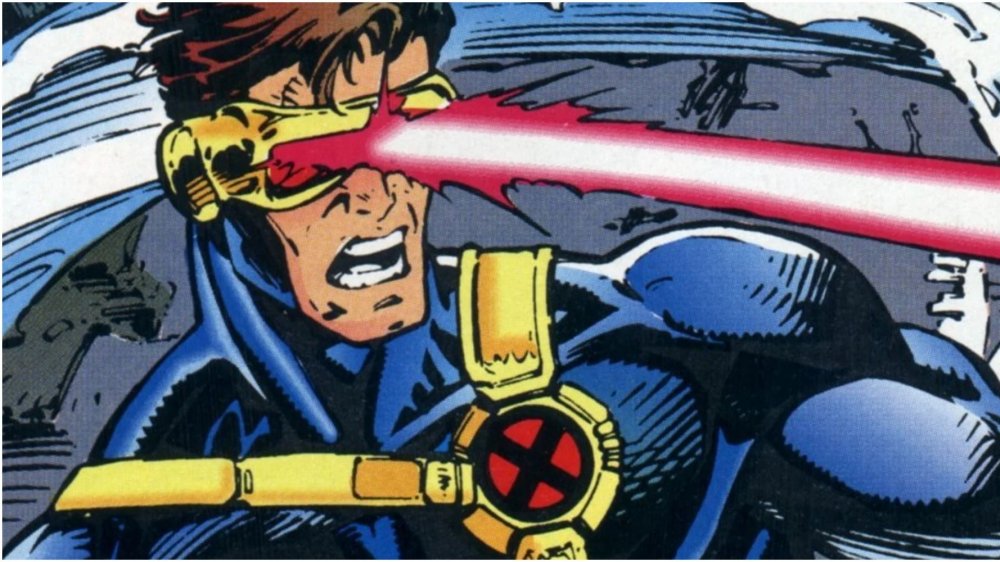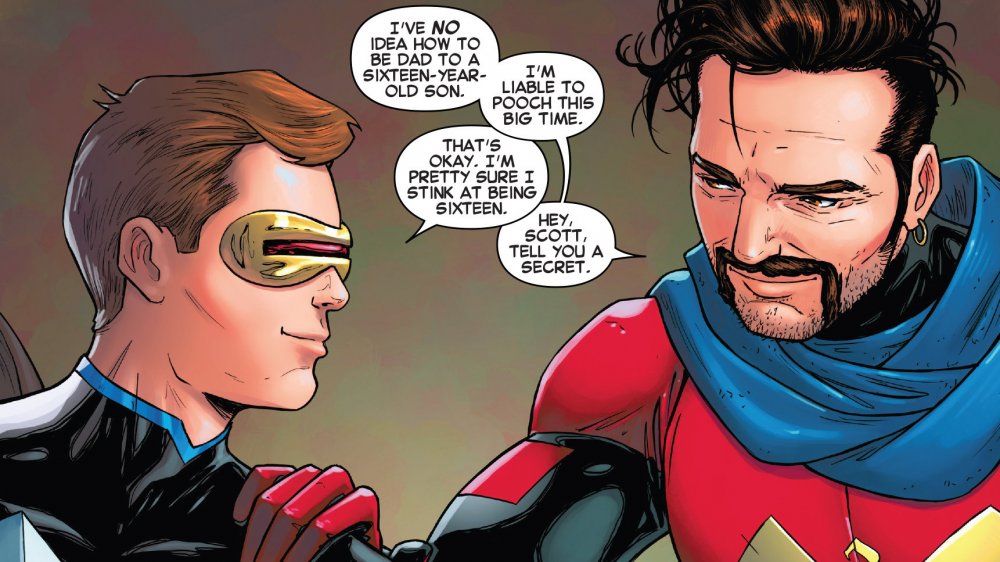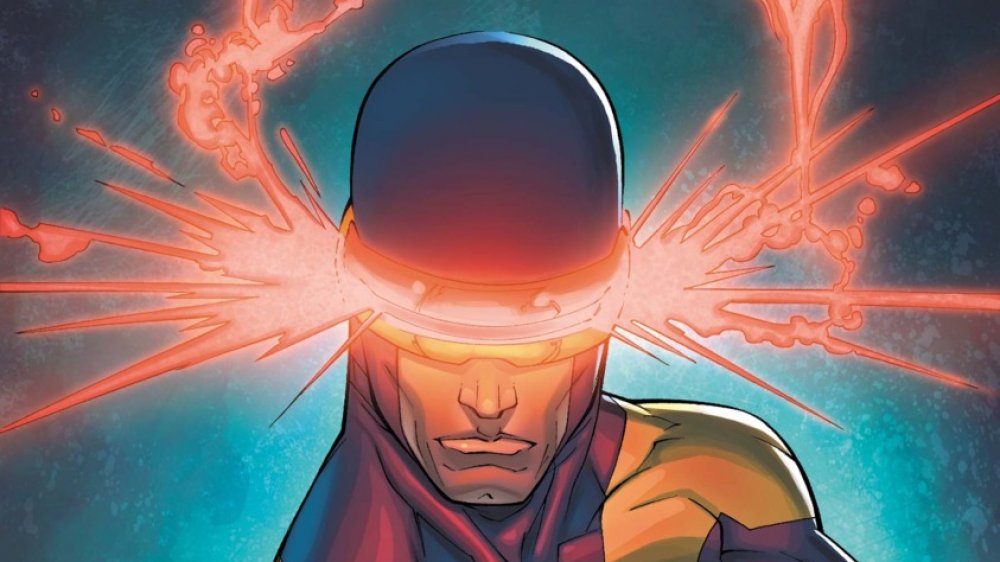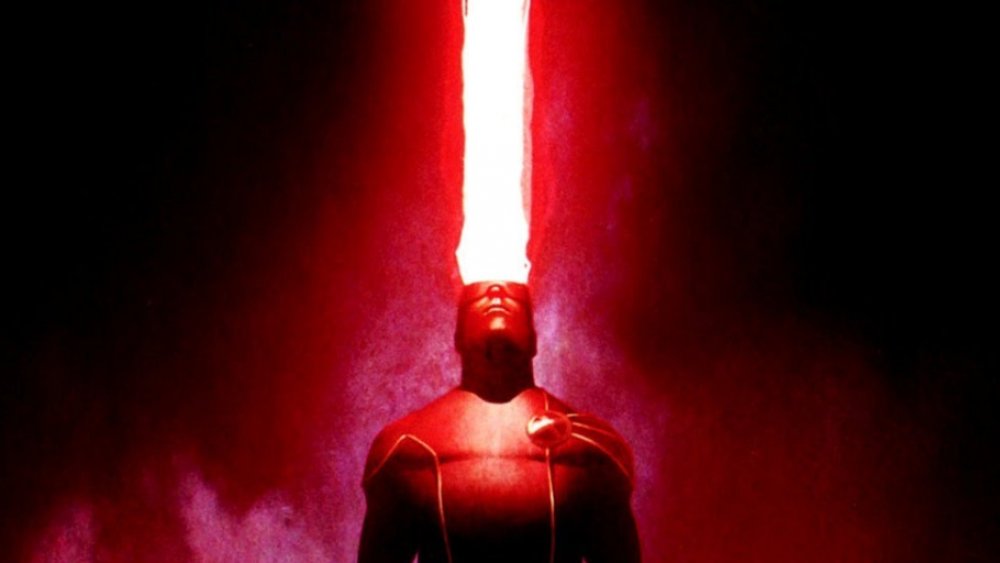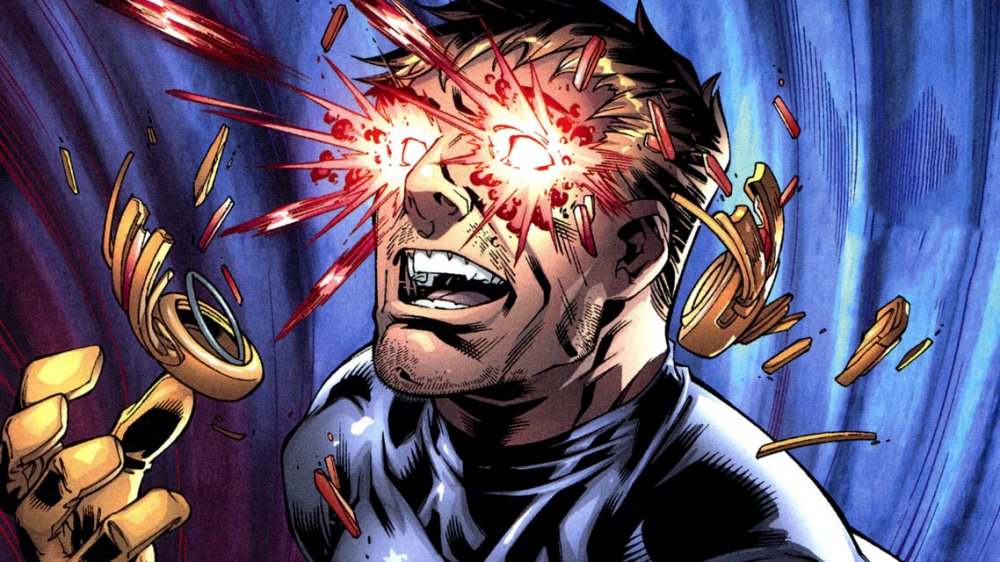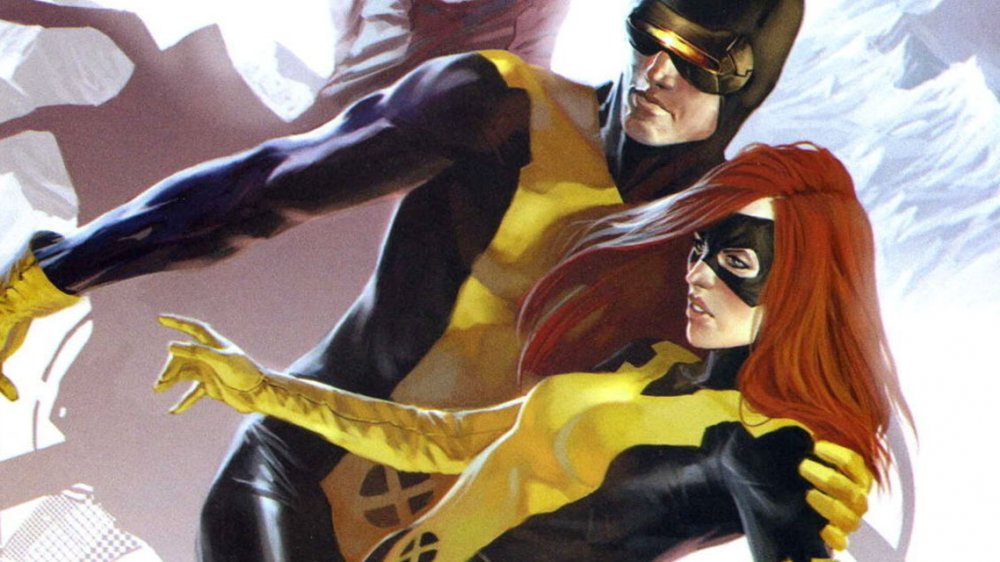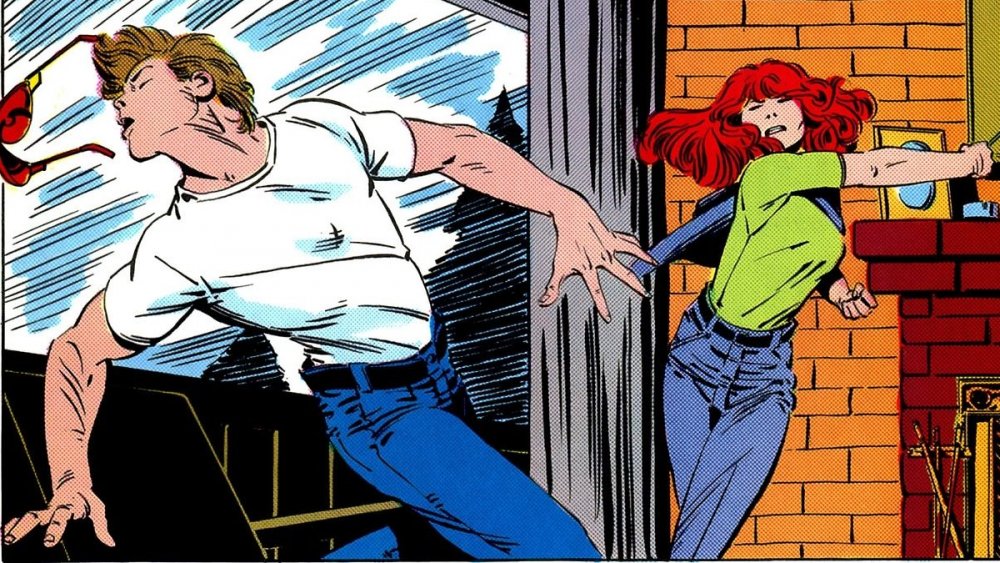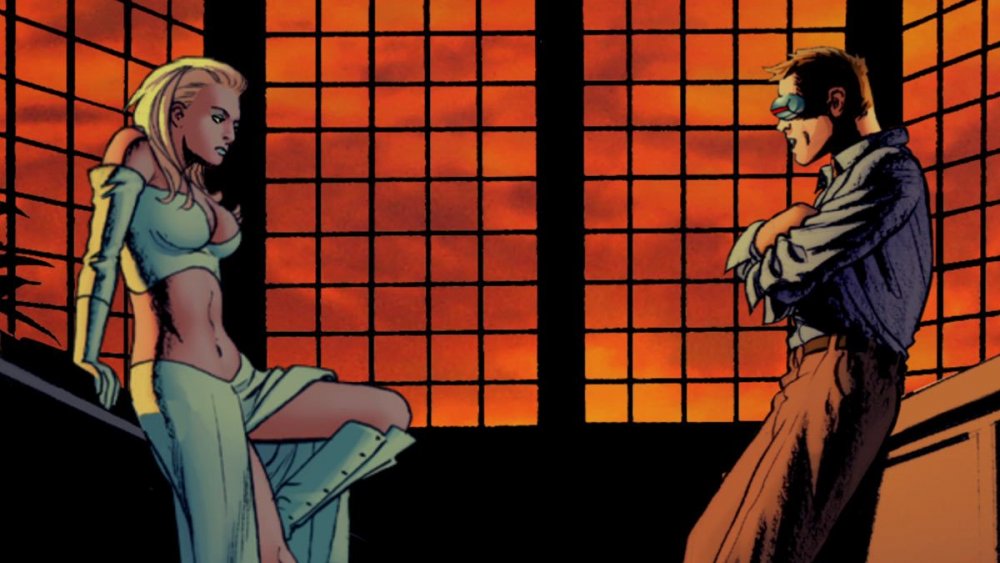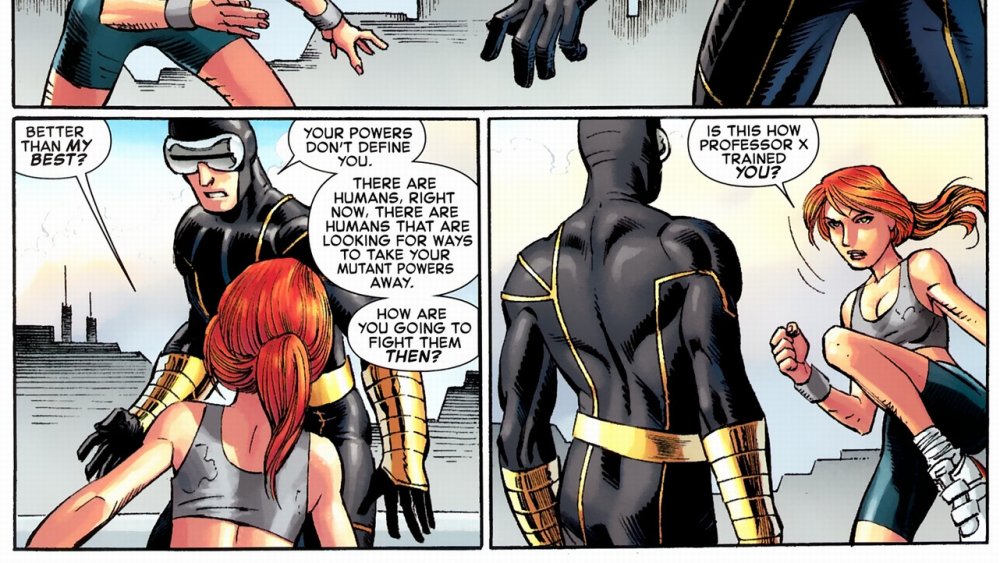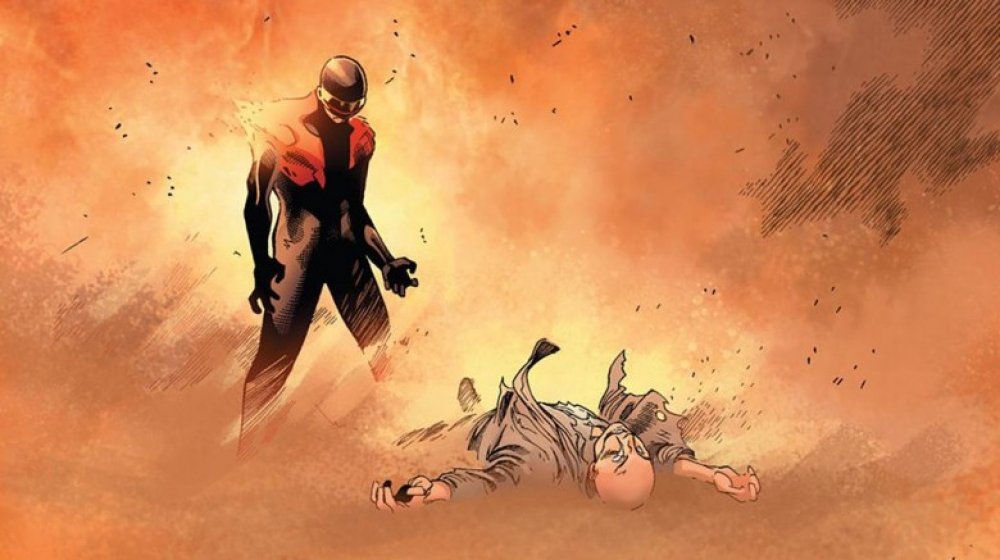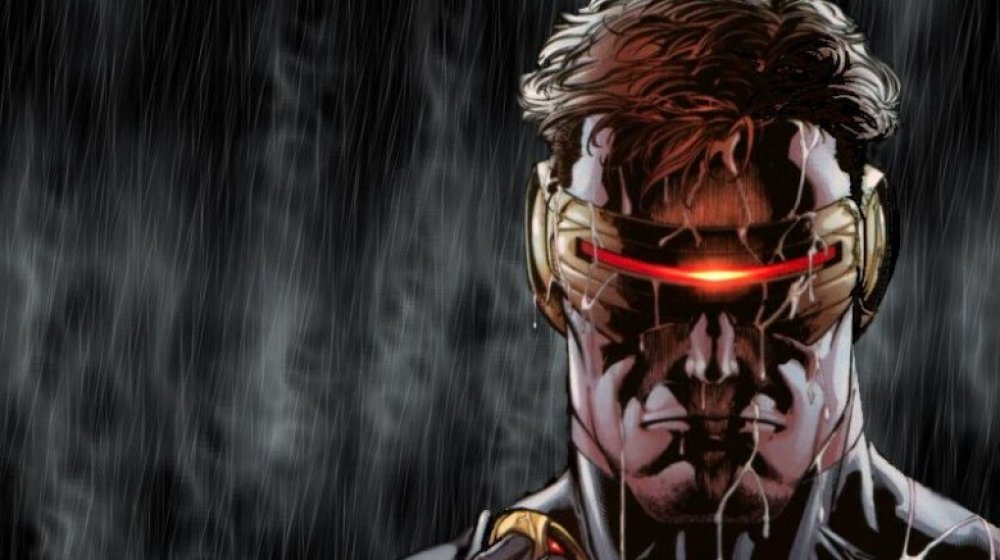Cyclops' Entire Backstory Explained
Though the Wolverine-centric X-Men movies might not make it clear, Cyclops is one of Marvel's most important mutants. Defined by his signature visor, he is as powerful as he is tragic — a Marvel hero of the purest sort. Cyclops' ability to fire optic blasts of pure concussive force makes him a force to be reckoned with, but it also keeps him from ever looking someone in the eye. He is as defined by the ways in which his powers limit him as he is by their tremendous applications. He is, in short, an X-Man: Spectacularly gifted, intractably cursed.
But it's not all doom and gloom. Cyclops has also led the X-Men to incredible success, romanced a whole host of women, and matured into a compassionate and confident warrior, diplomat, and comrade. After decades of comics, he is one of the most rock-solid members of the X-Men and one of the most successful products of Xavier's School for Gifted Youngsters. The man behind the visor is a complex creature indeed, from his bizarre parentage to his romantic entanglements, and he's been given short shrift too often. Today, we unravel Cyclops' entire story, Ruby-Quartz goggles and all.
The Summers family
The man who would be Cyclops was born Scott Summers, first son of Christopher Summers, an Air Force test pilot, and Katherine Summers. Unlike his eventual mentor, Charles Xavier, who lived the most comfortable life possible for an American mutant, Scott's life was rocky. It all began with a tragic incident that altered the course of his life forever.
One bucolic day, Scott's father was flying the family home from a vacation in one of his vintage planes. The family was suddenly intercepted by an alien aircraft piloted by representatives of the Shi'ar Empire. The aliens went on the attack, and the Summers' plane went up in flames. Knowing that their time was short, Scott's parents pushed him and his younger brother Alex out of the aircraft using a single parachute. Though Scott's mutant ability manifested as they fell, saving the boys from a deadly landing, Scott still sustained a grave head injury.
Since their parents were presumed dead, the brothers were put up for adoption. Scott's brother, who would become the X-Man known as Havok, was quickly adopted, but Scott was shuffled off to live in an orphanage in Omaha, Nebraska.
Orphaned and amnesiac
Scott's childhood is murky to him and the reader. The loss of his parents, the head injury he sustained, and the incredibly traumatic period he spent in the Omaha orphanage left his memory spotty and scarred. Scott's lack of control over his powers is often credited to his head injury, though different writers have addressed his erratic blasts in different ways.
Recent retcons of Scott's past, for example, have done away with the head injury hypothesis entirely. Instead, these takes assert that Scott's uncontrollable powers stem from emotional trauma. After spending time with psychic Emma Frost, working through the various layers of trauma that encrust his psyche, Scott discovered that his problems with control come from mental blocks put up to obscure incredibly painful portions of his life.
This makes sense, as what is known about Scott's time in the orphanage is deeply unsettling. The State Home for the Foundlings, as it was known, was actually a place of genetic experimentation, carried out by the fiendish Mr. Milbury. Milbury used wards of the state as subjects in barrages of unethical tests, with a particular focus on Scott. Eventually, Milbury was revealed to be the villainous geneticist Mister Sinister, who deliberately blocked certain parts of Summers' brain to erase evidence of his activities. Those barriers, plus the ones Scott erects on his own, prove difficult to overcome.
Disaster in New York
Like Magneto several years before him, Cyclops' powers emerged at the worst possible time and drew the attention of an angry crowd. This instance of his uncontrollable optic blasts happened on a crowded street in America's most populous city. A teenaged Scott was on a trip to New York City when he unwittingly shot beams from his eyes and destroyed a crane.
As the crane's payload dropped toward a crowd on the street below, a stunned Scott thankfully had the wherewithal to unleash another blast, vaporizing it before it could hurt anyone. The shocked mob of pedestrians turned on Scott, frightened by his abilities and believing he meant to kill them. He fled from the mob and escaped on a train, unfortunately becoming ensnared by a thief with mutant powers named Jack O'Diamonds.
Scott was yet again used toward nefarious ends by the adults in his life. Though he initially refused Jack's demands that he use his powers to commit crimes, the older and more powerful mutant still managed to force him into his schemes. The incident in New York attracted the attention of Charles Xavier, however, who tracked Scott down with the help of FBI agents.
Founding the X-Men
Scott's very first X-team was quickly rounded out with the additions of Beast, Angel, Iceman, and Marvel Girl, who would become better known to Marvel fans as Jean Grey. They battle Magneto in their very first outing, thwarting the Master of Magnetism in his quest to take over a military base. As would later be established, particularly as the series moved toward themes of prejudice and the struggle for civil rights, Magneto carries a hatred for humankind due to years of abuse and bigotry. Little of that was apparent at first, however: It was very much the good guys against the bad.
That's not to say the early X-Men didn't have complexity. Scott struggled with his feelings for Jean Grey as he ascended the ranks to become the deputy leader of the group. This was really to be expected, as Scott's entire character orbits ideas of subsuming passions and controlling emotions for the good of those around him. His lack of socialization, rough upbringing, and hair-trigger powers kept Scott at a distance from Jean ... but only for a while.
The Jean Grey question
Outside of his role within the X-Men, Scott's feelings for Jean Grey have been the constant in his life. New titles come along regularly with a fresh crop of writers eager to take on Cyclops' repressed rage. Storylines and Marvel-wide events shatter the mythos into thousands of shinning pieces. But Scott Summers and Jean Grey remain a dynamic couple, no matter the situation. Sometimes they're together. Sometime they're apart. But one thing is always true: They never stop mattering to each other.
Scott's love for Jean Grey has led to some of his lowest moments. He fathered a child with a clone of her, as part of a long con put in play by — you guessed it — Mister Sinister. Jean's transformation into Dark Phoenix, and her eventual suicide to save the rest of her team, led to Scott quitting the X-Men entirely and joining a fishing vessel. An attack on the crew by the demon D'Spayre opened Scott up to parts of his childhood that had been mentally blocked. Eventually, he rejoined the team — but he was not the man he'd been.
Coming and going
After the first death of Jean Grey, Scott's role in the X-Men went into flux. Once, he placed immense trust in Charles Xavier and his vision of a brighter future, built on the heroism of the X-Men. That optimism had been eroded, however. Death, hardship, and trauma changed him, and the results have been, well, weird.
After marrying Madelyne Pryor, a Jean Grey lookalike, and fathering a son who would become Cable, Cyclops threw himself into his work. Don't be too impressed: He did this specifically to avoid having to deal with his family. He was eventually removed from his role as leader by Storm, who challenged him to a fight for the role of field general specifically because Cyclops' dangerous choices ran the risk of leaving Cable fatherless.
When a reborn Jean Grey appeared, he abandoned his family to join X-Factor, a organization geared towards helping vulnerable mutants. As if that didn't make Cyclops look bad enough, that storyline ended in a battle between Jean and Madelyne, and Madelyne's subsequent death. Eventually, after some wibbly-wobbly time travel, Scott and Jean retired from the X-Men.
Diminished role
Recent iterations of the X-Men have downplayed Cyclops' role. In the X-Men movies that heralded the superhero boom of the last two decades, Cyclops is largely shouldered aside to make room for the scene-stealing presence of Hugh Jackman's Wolverine. If that wasn't enough, screenwriter Joss Whedon took to the comics in 2004 for a run of Astonishing X-Men, in which Cyclops is temporarily without his own powers.
That's not to say Scott was rendered useless, however. Astonishing X-Men actually saw Scott grow to new heights of heroism, confidence, and leadership. Without his powers, he was able to truly come into his own — often with the help of Emma Frost, his then-girlfriend. It was in this storyline that Scott saved the world, gave mutant-kind a brave new face, and found the confidence to run the School for Gifted Youngsters on his own. However, that confidence would come at tremendous cost in the infamous story arc, House of M.
Mutant messiah
For the unfamiliar, House of M was a line-wide Marvel event in which nearly all of the world's mutants were depowered. Magneto's daughter Scarlet Witch ripped apart the fabric of reality as her own mind deteriorated, in order to create a timeline in which she still had children. In the wake of the universe snapping this way and that, nearly all mutants lost their powers.
The first new mutant to be born after Scarlet Witch's universe-shattering blow was a girl named Hope Summers. Seemingly immaculately conceived and adopted by Cyclops' son Cable, Hope offered a bit of optimism that mutant-kind could carry on. Cyclops went all in on this idea, treating her as the mutant messiah ... and ignoring the fact that she was possessed by a great cosmic evil.
You see, Summers was acting as a host of the Phoenix Force. This celestial being is the very same entity that possessed Jean Grey and led to her first death. Scott knew the Phoenix Force to be a cruel, uncaring force of cosmic chaos. And yet, he protected it from his fellow superheroes who wished to restrain Hope until they could determine how to contain the Force.
An unlikely turncoat
This fanatical belief took Scott down one of the darkest paths in his entire history. In the Avengers vs. X-Men arc, he went above and beyond to keep Hope Summers from being captured. He even took on some of the power of the Phoenix Force in his quest to protect its current host. As with any ultra-powerful fantasy entity, it deeply corrupted Scott in ways he could not have foreseen.
While before, Scott was (at his worst) a bland stand-in for old-world comic book do-gooders, the new Phoenix-fused Cyclops was far more open to extreme violence and desperate measures. He craved more of the Phoenix Force's power and managed to sap quite a bit of it from Emma Frost. When Professor X attempted to intervene and save his first recruit from evil, Cyclops went full Darth Vader and struck down his former mentor. While Cyclops was eventually separated from the cosmic force, he ended the arc in prison for the murder of Charles Xavier.
Martyrs and revolution
If you thought Scott would easily and readily recommit to the forces of good, you haven't been paying attention. Newer iterations of the hero with the Ruby-Quartz visor can almost always be counted on to make the weakest, easiest choice, leaning in to those newly freed-up emotions because it just feels better. Scott left the Avengers vs. X-Men storyline as a full-blown villain, teaming up with Magneto and attempting to start the metal-bender's revolution for him.
Fully coming around to Magneto's desire for a mutant-led rebellion, Scott almost immediately went from the leader of the X-Men to an optic-blasting terrorist. He called for open revolt that only really ended when he was killed by a mysterious gas that is poisonous only to mutants. Echoing other rebel movements, Scott's death briefly inspired a band of revolutionaries to carry out attacks in the name of their newfound martyr. This only ended when a young Scott was brought from the past to state the case for coexistence.
